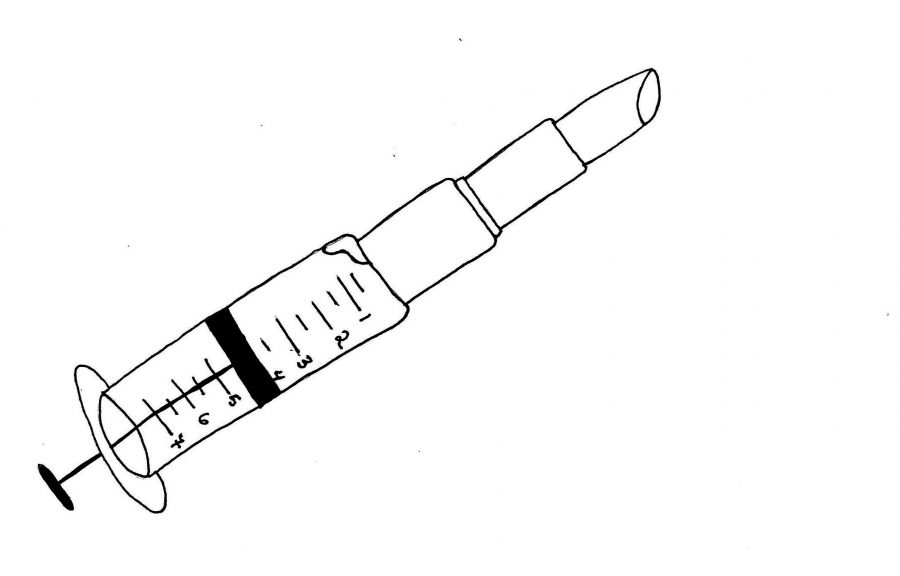Testing cosmetics harms animals
May 11, 2016
Day in and day out they have different eyeshadows, eyeliners, and shampoos layered on their fur and around their eyes. They are pulled from their cages countless times to be injected with needles, until eventually the scientist performing the experiment decides the results were inconclusive and promptly ends the animal’s short life.
Since as early as the 1500’s, people have been experimenting on animals and calling it justified, which could not be further from the truth. The real truth is that animal testing is a cruel existence for the animals.
The Humane Society International stated, “Animals used in experiments are commonly subjected to force feeding, forced inhalation, food and water deprivation, prolonged periods of physical restraint, and the infliction of burns and other wounds to study the healing process.” The worst part is that since 2010, there have been alternate testing methods available.
In-vitro (in glass) testing, such as studying cell cultures in a petri dish, can produce more relevant results than testing done on animals because human cells can be used. This option of in-vitro is more efficient because the anatomic, metabolic, and cellular differences between animals and people make animals poor testing subjects.
Paul Furlong, Professor of Clinical Neuroimaging at Aston University, states that it’s very hard to create an animal model that is even close to what they need for a human.
Furthermore some chemicals that are harmful to animals are valuable for humans. Aspirin, for example, is dangerous for some animal species, but is safe for humans and has many uses.
The Animal Welfare Act does provide some protection to many animals, but it does not cover rats, mice, fish and birds, which comprise around 95% of the animals used in research.
But even with these few laws in place, there are still countless animal abuse cases reported from people going undercover or officials stopping in for a surprise visit.
Ask the scientists why they experiment on animals, and the answer is: “Because the animals are like us.” Ask the experimenters why it is morally okay to experiment on animals, and the answer is: “Because the animals are not like us.” The real answer is they feel pain just like us.



